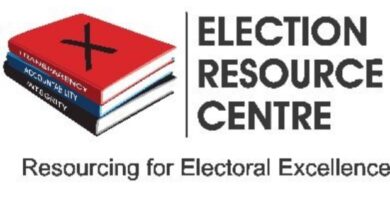Prof Mthuli Ncube Unveils Sweeping Reforms to Streamline Retail Sector Licensing in Zimbabwe

Loraine Phiri
Minister of Finance, Economic Development and Investment Promotion, Hon. Prof. Mthuli Ncube, has announced a comprehensive package of Ease of Doing Business reforms aimed at streamlining operations and reducing compliance costs for the wholesale and retail sectors in Zimbabwe.
The announcement, detailed in a press statement released on October 31, 2025, follows similar reforms recently enacted for the Livestock, Tourism, and Transport sectors. The core of the new measures focuses on consolidating fragmented licences and capping associated fees.
“The retail sector is one of the fastest growing sectors in Zimbabwe, and to further strengthen Government has converged to remove the fragmentation consolidating several retail licenses into one shop licence and reducing the number authorities involved in the clearance process to one,” stated Minister Ncube in the statement.
Under the new framework, the government has removed eleven (11) Local Authority licence requirements by consolidating them into a single ‘Shop Licence.’ This simplification is designed to ease business for unitary shops with various business lines, such as those combining a bakery, butchery, restaurant, and takeaway food factory. Previously, licences for activities like a food factory alone could cost as much as $2,300.Furthermore, licences for factory and retail operations have been combined into one for integrated businesses under the same premise, substantially cutting regulatory and compliance costs.
The reforms introduce significant financial relief, particularly for smaller enterprises. Local Authorities are now mandated to differentiate licence fees for smaller businesses, working within a sliding scale fee structure that is capped at $500 to actively promote the growth of SMEs. Alongside this, several key administrative fees have been sharply reduced. The Change of Property Use fee, which was charged as high as $3,500 by some Local Authorities, has been capped at $1,000. Effluent waste management costs have also been reduced from USD$575 to USD$200 annually, acknowledging that businesses already incur costs for emptying septic tanks.
Additional measures simplify regulatory compliance across the board. Bottle Store Licences have been removed for bottle stores that are already part of a retail shop with a valid licence. Shops engaging in both retail and wholesale business will now receive a single licence covering both operations. The Public Procurement and Disposal of Public Assets Authority (PRAZ) licence fees have been combined across categories into one licence, costing between $50 and $120, which can be used by all branches of a business line. The Local Authority Financial Services Licence will be replaced by a single annual licence issued by the Reserve Bank of Zimbabwe (RBZ) for a flat fee of $20, marking a massive decrease from previous charges that could reach $1,867. Regulatory redundancies have also been addressed, notably with the scrapping of the Permit to Sale Veterinary Products by the Medical Control Authority of Zimbabwe (MCAZ) because its function was found to duplicate and overlap with the Department of Veterinary Services.
Minister Ncube underscored the strategic objective underpinning these vast administrative changes. “These measures are meant to aid in the creation of a conducive economic environment where jobs will be created, productivity improved across all sectors of the economy, achieving high growth rates through improving the ease of doing business,” he stated.
He concluded by reiterating the government’s vision: “Government remains committed to improving the business environment to encourage domestic and foreign investment in which Zimbabwe can become an Upper Middle-Income Society by 2030.”




